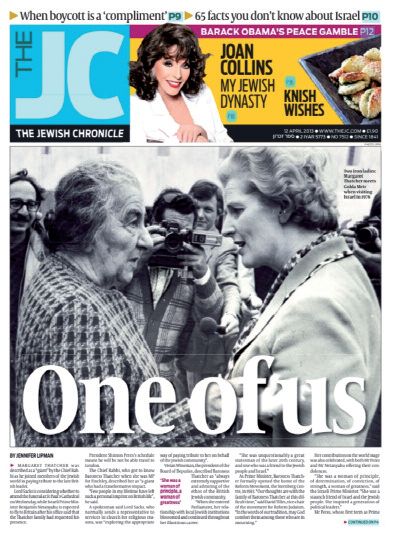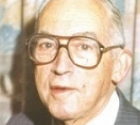

.jpg)
.jpg)
.jpg)
.jpg)
Read all about it . . . how some of the newspapers in Britain reported the death of Baroness Thatcher
Margaret Thatcher, once described as the most loved and most vilified Prime Minister in British history, was a political leader ranking among the greatest of the 20th century. Her achievements included transforming a British economy long held hostage by tyrannical trade unions, stimulating growth through an unswerving belief in meritocracy and free enterprise, defending British citizens in the Falkland Islands when that territory was invaded by a foreign power, and, together with U.S. President Ronald Reagan, spearheading the policies which eventually led to the break-up of the Soviet Union. Her failings were almost all in the field of domestic politics and the exacerbation of social conflict, as her insistence on the value of self-help and reduced reliance on government hand-outs clashed with a British underclass nurtured on the socialist ethos of a welfare state.
What makes her stand out from any list of modern-day politicians was her absolute conviction about the rightness of her policies. Whenever opposed or challenged, she refused any compromise which conflicted with the principles and values in which she firmly believed. Her political convictions derived from her upbringing as the daughter of provincial tradesman, a world away from the traditional upper crust background of Conservative party leadership, and from her struggle to reach the summit of achievement through the ranks of a male-dominated hierarchy. She eventually became the longest continuously serving British Prime Minister in the 20th Century (1979-1990).
Although her successive governments were protected by large parliamentary majorities, she often had to contend with lesser figures from within her own party attempting to soften her stance on the issues she stood for.
As a young girl she and her family helped an Austrian teenage girl who had managed to escape from the Nazis, and this was a formative experience which led to a life-long intolerance of anti-Semitism and of those who countenance it. As a Member of Parliament she represented for 33 years a North London constituency with a large Jewish community, she publicly protested against a local golf club which habitually banned Jews, and she clearly admired the Jewish emphasis on self-help and the acceptance of personal responsibility. She was a strong supporter of Soviet Jewry. When she became leader of the opposition in 1975, she was considered ‘suspect’ because of her outspokenly pro-Jewish sympathies. As Prime Minister, she asked several prominent Jews to join her government and at one point no less than one-quarter of her cabinet were of Jewish origin.
She considered herself a staunch friend of Israel, admired Israel’s democracy and was clearly impressed by Israel’s achievements. However while she had warm feelings for British Jews, her political approach towards Israel was more nuanced. She was protective of British political and commercial interests in the Middle East and was unwilling to risk them through automatic support for Israel. She was strongly influenced by the British Foreign Office perception that the Arab-Israeli conflict lay at the core of the difficulties facing the west. She had a difficult relationship with Israeli Prime Minister Begin, and opposed the attack on the Iraqi nuclear reactor and the Lebanese War. She felt that Israel’s policies were liable to exacerbate regional stability and undermine Britain’s Arab allies. She supported the EEC (now EC) Venice Declaration in 1980, which called for a halt to settlement activity and for the rights of the Palestinians to self-determination to be recognized. She approved controversial arms sales to Arab countries while Britain was placing restrictions on such sales to Israel. She believed in strengthening moderates, clearly identifying more closely with the policies of the Israeli centre-left, and in 1986, when Shimon Peres was Prime Minister in Israel, she became the first British Prime Minister to visit Israel while in office. When asked when the Queen might visit Israel, she is said to have responded: “Well, I’m here.”
Recent Israeli governments have to some extent tried to emulate versions of Margaret Thatcher’s free-market economic policies and emphasis on self-help. Her views did not always coincide with those of the Israeli government in power, but she was fundamentally a supporter of Israel and a good friend of the Jewish people.
 ESRAmagazine Photo Contest: terms and conditions
ESRAmagazine Photo Contest: terms and conditions Advertisers List
Advertisers List-1366906022.jpg) Mayor at tree planting
Mayor at tree planting Bridesmaid recalls a very special day 59 years ago
Bridesmaid recalls a very special day 59 years ago Harry Berman
Harry Berman Sam Levin
Sam Levin Ilan Shachar
Ilan Shachar